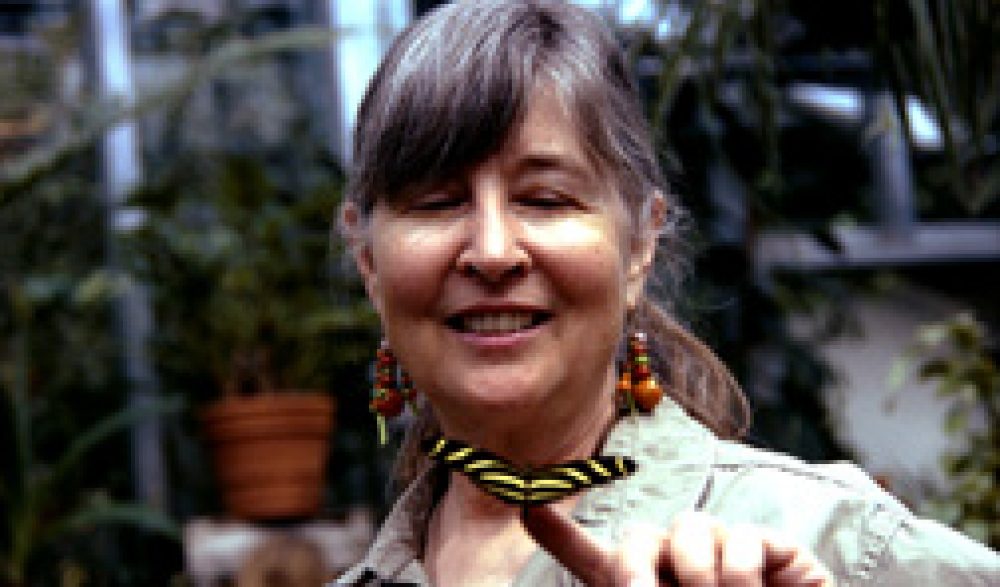I was no quicksilver child, but a lollygagger, an idler, a poker of anthills, an inspector of the underworlds of rocks, a walk-don’t-run child nosing in bushes and skulking in the woods. The Limberlost girl had nothing on me. Left to myself for hours every day, I loitered in fictional wonderlands and wandered the neighborhood. I liked ordinary things, perhaps because I felt so ordinary myself, and found comfort in the discovery that almost anything was interesting up close. If I had read Henry David Thoreau, I might not have thought myself lazy or a waster of time. “I only met one or two persons in my life,” claimed Thoreau, “…who had a genius, so to speak, for sauntering. No wealth can buy the requisite leisure, freedom and independence that are the capital of this profession. It comes by the grace of God alone. It requires a direct dispensation from heaven….”
I learned at an early age the spaciousness of time required by serious artists and writers but thought foolish and unproductive by persons busy laying up more visible treasure. In Murree, hours might pass as I imagined castles on a Himalayan hill, my slight self reclined on a rug of moss torn from rocks and patted into a nest. In Lahore I’d sit on our white-washed front porch steps waiting for a line of gloomy-looking vultures, hunkered on a distant branch, to flap off, soar and spiral down on some distant, mysterious corpse. I’d wander off to sample the strange sharp scent of impossibly perfect lantana, steal a banana from our backyard trees, sniff the musky sweetness of the tea roses my mother loved.
My parents did not attempt to fill my time with a schedule of educational and social activities. I often felt like a small balloon drifting about the edges of things, but I was very much a flesh and blood child hardly immune to the scorpions, centipedes, cobras, tarantulas, mosquitoes, microbes and viruses I might easily encounter. “Don’t talk to college students,” my mother instructed in Lahore where young men would jeer at me as I rode by on my bike. “Don’t go barefoot!” my father warned, describing the horrors of the tiny hookworm that could pierce my heel and creep up through my leg into my abdomen. “Come down this minute!” my mother would chide, spotting me up one of the tall pines edging the cliff we called the cud. “Don’t eat anywhere except at home.” “Don’t drink the water.”
Most of the rules I obeyed—especially the barefoot one (which Dewey says he resented for slowing his soccer prowess and upping the danger of stepping on his friends’ bare toes.) Some, surreptitiously, I didn’t, experiencing few ill effects beyond the vicious stings of ants no bigger than print in a book. This illusion of safety reached into my twenties when, during a Peace Corps stint in a country that became Biafra while I was there, I thought nothing of hitting the road with a flight bag to hitchhike the five hundred miles from Enugu in Eastern Nigeria to Lagos in the west, sharing the back of lorries with chickens and goats or threatening the wandering hands of Volkswagen drivers with a lit cigarette. I’d wagered that anyone who owned a car would not risk an international incident harming a PCV and I was right—or, some would say, lucky; others that my parents were praying for me, which was an understatement.
I didn’t stop sauntering until I was twenty-six. In college friends had teased that I walked like a basketball player, my slow lope easily identified across campus. When I joined the Peace Corps, I’d stepped smoothly into the High Life, the happy shuffle of the favored Nigerian dance. By my early thirties, however, I had abandoned my sauntering to marry a Vietnam vet, administer a public library system, cook and clean for a commune and have a baby. By thirty-four, after eight years of high gear, I developed an ulcer and vanished into the doorless, windowless womb of a clinical depression. Under the patient ministering of a tiny female Philippino Freudian psychiatrist, I emerged a single mother and a writer, resuming my childhood freedom to do pretty much what, when and where I wished. For forty years I have been honing my lollygagging skills, taking only jobs that gave me joy, assignments in which I could delight. I even became an amateur mycologist, which required a pace so slow that even sauntering resembled the racing hare.
“Magical thinking,” diagnosed a sensible long-time college friend who was working two jobs and socking away a tidy retirement. Meanwhile, I followed my bliss, depending on lucky house sales, fee work for textbooks and, today, Social Security and used book sales to pay the bills. Still, of the many good ways to live, surely mine is one. When I’m feeling unproductive, financially irresponsible, or just plain lonely, I remember that dear man Thoreau, who I’m certain would assure me that the gift of attention is a kind of grace and the truest evidence of love.
